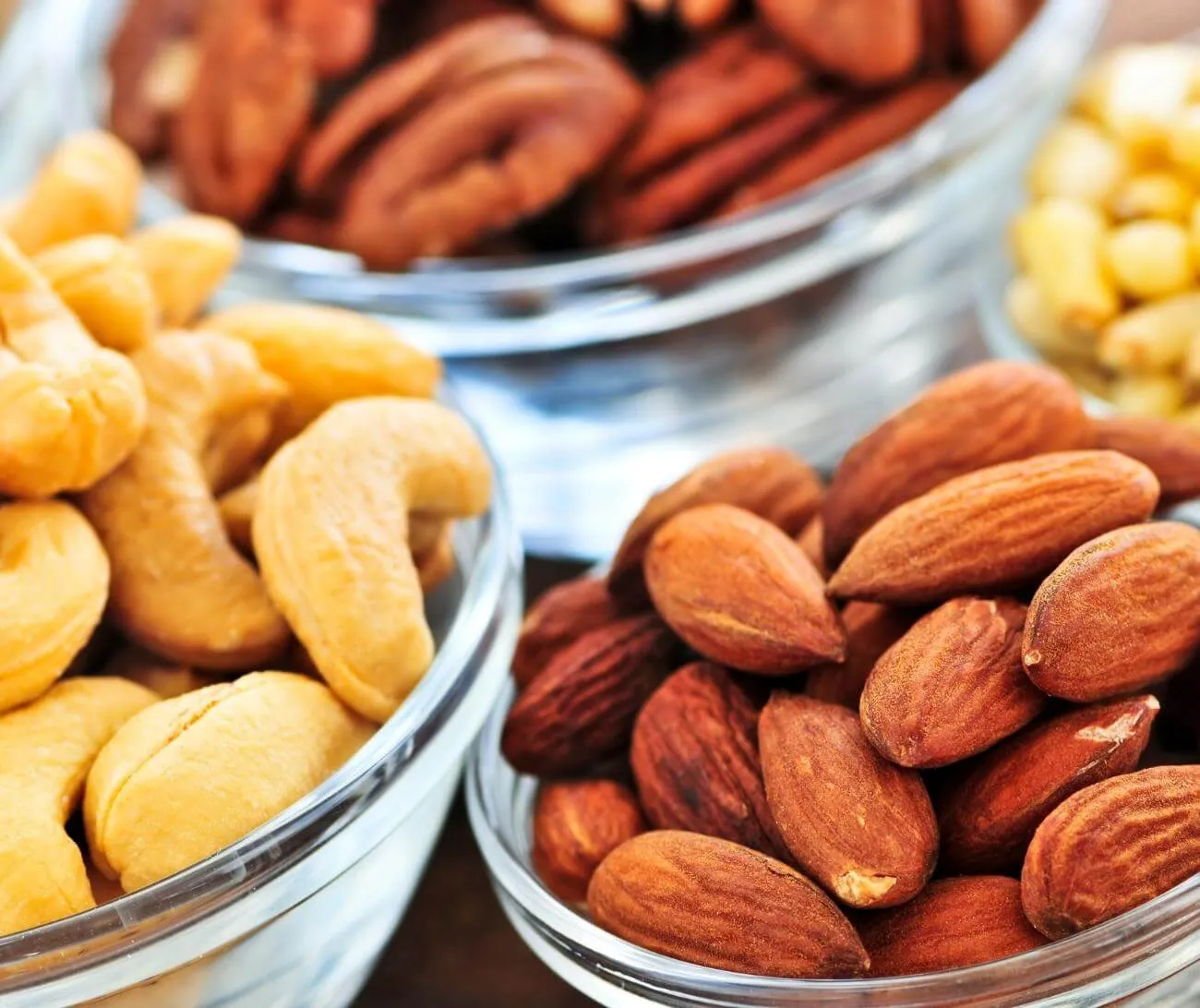Ask a coffee drinker to give up their morning cup, and you may just find yourself in a wrestling match. Our love for coffee is real. Despite what you may have heard, regular coffee consumption appears to have many benefits for our health, including lowering the risk of developing type 2 diabetes.
But coffee's impact on blood sugar is complex, and like any food or drink, each person can have a different glucose response after drinking it thanks to genetics or other factors. For some people, caffeine can be protective, but it could impair blood sugar response for others.
In this article, we'll look at what the research says about coffee and its connection to your blood sugar.
{{mid-cta}}
How Does Coffee Affect Your Blood Sugar?
Studies show that even though coffee can temporarily increase blood sugar, long-term it's protective against type 2 diabetes for otherwise healthy people.
While it isn't clear exactly why this is the case, one reason it supports healthy blood sugar may be related to the many antioxidant compounds found in coffee that lower inflammation. Daily coffee consumption is linked to reduced markers for inflammation in the body. The compounds in coffee could also improve glucose uptake into your muscle cells.
A large meta-analysis found that drinking more coffee was associated with a significantly decreased risk of developing type 2 diabetes for both caffeinated and decaffeinated coffee, so the protective compounds in coffee are likely independent from caffeine. But coffee could be problematic for people with type 2 diabetes because of caffeine.
Caffeine and Blood Sugar
Coffee—or more specifically caffeine—may work differently in the body for people with type 2 diabetes. While coffee may be protective long-term, it has a different effect once someone has blood sugar dysregulation.
Research suggests that caffeine impacts how your body responds to insulin. Insulin is a hormone that helps shuttle glucose from the bloodstream into your cells for energy. Caffeine could lower insulin sensitivity, which means glucose stays put and raises blood sugar.
For people without type 2 diabetes, this is a short-term response, but caffeine from coffee could add to elevated blood sugar and insulin levels for those with blood sugar dysregulation or impaired fasting glucose.
A systematic review found that caffeine significantly increased glucose and insulin and lowered insulin sensitivity for people with diabetes. Another study on people living with type 2 diabetes gave participants a caffeine pill before eating and noted higher blood sugar and insulin resistance after meals.
There are a few reasons caffeine may adversely impact your blood sugar:
- First, caffeine is a stimulant that can temporarily elevate stress hormones like cortisol or epinephrine. These hormones promote hyperglycemia as a biological adaptation to give you quick energy in times of stress but aren't helpful when you aren't actually in a dangerous situation.
- Adenosine is a molecule that helps regulate sleep and energy. When adenosine binds to its receptors, it slows down nerve cell activity and makes you feel sleepy, but it also plays a big role in glucose control by increasing insulin sensitivity. Caffeine blocks adenosine from binding to its receptors, which could add to elevated blood sugar.
- Finally, caffeine can increase sleep issues for some people, especially if you drink it too late in the day. Our blood sugar is closely tied to circadian rhythms (natural sleep cycles), so elevated blood sugar is linked to poor glucose control.
For people with type 2 diabetes, the effects of caffeine on blood sugar could last longer too. One study found that when people with type 2 diabetes had caffeine with breakfast and lunch, the glucose response was higher even at dinner.
Should You Drink Decaf Coffee for Better Blood Sugar?
If you already drink regular coffee and don't have blood sugar issues, the long-term benefits outweigh the short-term changes in glucose metabolism for most people. But people with insulin resistance or prediabetes may want to consider decaf coffee instead.
There are small amounts of caffeine in decaf, so insulin sensitivity could still be affected on a smaller scale than regular coffee. Plus, you'd also benefit from the other anti-inflammatory compounds in coffee.
That said, many decaf coffee brands use chemical processes to extract the caffeine, so you want to find a company that uses non-toxic methods.
And if you don't drink coffee, you don't need to start (unless you want to) because there are many other foods or lifestyle habits that help reduce your risk of type 2 diabetes.
Does Adding Cream and Sugar Affect Blood Sugar?
All of the above studies are based on black coffee or caffeine supplements without adding cream or sugar. Small amounts of cream likely won't impact blood sugar because it's primarily fat and has a low glycemic response. But adding sugar to coffee can spike your blood sugar, so it could be even more of a problem in combination with the short-term drops in insulin sensitivity.
So what can you add instead of sugar? There are a few natural sweetener options, including:
- Monk fruit
- Stevia
- Cinnamon (this has extra blood sugar balancing benefits too)
You want to skip artificial sweeteners like aspartame or sucralose because some studies suggest they can negatively affect blood sugar regulation.
What are the Health Benefits of Coffee?
- Reduced risk of type 2 diabetes
- Lower risk of metabolic syndrome
- Lower cancer risk16
- Cardiovascular protection
- Reduced all-cause mortality16
- Improved focus and alertness (by blocking adenosine)
- Protection against neurological diseases like dementia and Alzheimer's
Many of these benefits are again related to the action of polyphenols in coffee that lower inflammation in your body.
What are the Health Risks of Coffee?
Too much of anything isn't great for us (except for maybe broccoli), including caffeine. Drinking too much coffee—and as a result, caffeine—can have adverse effects on the body. Each person's response can be different and depends on things like:
- Your genetics and how well you metabolize caffeine.
- Pre-existing health conditions like heart problems or high blood pressure.
- Pregnancy and breastfeeding (some caffeine is okay in most cases but discuss it with your OB/GYN).
- Certain medications that are contraindicated with caffeine.
For the average adult, under 400 mg of caffeine is considered safe.16 That amount is equivalent to 3 to 5 cups of coffee (depending on the roast and the type of bean) or 5 espresso shots. But if you are someone who feels jittery after a cup of coffee, the amount can be significantly less.
The risks of too much caffeine can vary from person to person and include:
- Insomnia or restlessness
- Anxiety
- Acid reflux
- Increased blood pressure
Paying attention to how your body feels is a good indicator if you aren't sure how much coffee is too much for you. And as always, consult your doctor if you are concerned about your caffeine intake or coffee's effect on any pre-existing conditions.
What Can I Drink Instead of Coffee?
If you want to start your morning with a tasty beverage, but coffee isn't working for you, you have other options.
Green Tea or Matcha
Green tea is also high in anti-inflammatory polyphenols that provide many health benefits to reduce inflammation and support healthy blood sugar. Green tea is also associated with a lower risk of chronic diseases like cardiovascular disease and cancer.
Matcha is a type of green tea made from whole, ground tea leaves. It has a higher concentration of polyphenols and antioxidants than regular green tea because you consume the entire leaf.
Even though it contains caffeine, green tea also contains L-theanine, an amino acid that supports feelings of calm and focus. The combination of caffeine and L-theanine leads to a more balanced energy without the coffee crash.
<p class="pro-tip"><strong>Learn more about </strong><a href="/blog/green-tea-weight-loss">the health benefits of green tea and matcha</a></p>
Mushroom Coffee
Mushroom coffee is a coffee substitute made with roasted ground mushrooms like Chaga, cordyceps, and lion's mane. It has a coffee-like taste and aroma because of the roasting process but contains no caffeine.
Mushroom coffee is a good choice if you are seeking the benefits of coffee but want to avoid caffeine. It doesn't taste exactly like coffee but has a similar flavor profile. Mushrooms have benefits for blood sugar and can also support immunity, mood, and cognitive function.
Chicory Coffee
Chicory coffee is caffeine-free and has a similar flavor to coffee. If you are looking for an alternative to coffee that still tastes like coffee, chicory coffee is a good choice. Chicory is a prebiotic, meaning it feeds the good bacteria in your gut. It is also a good source of inulin, a soluble fiber that supports healthy blood sugar levels.
Yerba Maté
Yerba maté is an herbal tea made from the leaves of the yerba maté plant. It's a bit of an acquired taste, but some people find it has a coffee-like flavor.
Yerba maté is caffeine-free and contains compounds that have been shown to have coffee-like effects on the body, including increased alertness and improved mental clarity. It also contains antioxidants that support a healthy immune system.
<p class="pro-tip">Read about the benefits of "green" coffee</p>
Coffee's Health Benefits Depend on Your Personal Response to Caffeine
Coffee has a complex relationship with blood sugar. On the one hand, caffeine can raise blood sugar levels, while on the other hand, coffee consumption is linked to a lower risk of type 2 diabetes.
If you are unsure how coffee affects your blood sugar, using a CGM can help you learn exactly how you respond. Paired with the Signos app, you can get real-time feedback to help you make informed decisions about your coffee consumption. Click here to learn more.
Topics discussed in this article:
References
- Robertson, T. M., Clifford, M. N., Penson, S., Williams, P., & Robertson, M. D. (2018). Postprandial glycaemic and lipaemic responses to chronic coffee consumption may be modulated by CYP1A2 polymorphisms. The British journal of nutrition, 119(7), 792–800. https://doi.org/10.1017/S0007114518000260
- Reis, C., Dórea, J. G., & da Costa, T. (2018). Effects of coffee consumption on glucose metabolism: A systematic review of clinical trials. Journal of traditional and complementary medicine, 9(3), 184–191. https://doi.org/10.1016/j.jtcme.2018.01.001
- Kempf, K., Herder, C., Erlund, I., Kolb, H., Martin, S., Carstensen, M., Koenig, W., Sundvall, J., Bidel, S., Kuha, S., & Tuomilehto, J. (2010). Effects of coffee consumption on subclinical inflammation and other risk factors for type 2 diabetes: a clinical trial. The American journal of clinical nutrition, 91(4), 950–957. https://doi.org/10.3945/ajcn.2009.28548
- Ong, K. W., Hsu, A., & Tan, B. K. (2012). Chlorogenic acid stimulates glucose transport in skeletal muscle via AMPK activation: a contributor to the beneficial effects of coffee on diabetes. PloS one, 7(3), e32718. https://doi.org/10.1371/journal.pone.0032718
- Ding M, Bhupathiraju SN, Chen M, van Dam RM, Hu FB. Caffeinated and decaffeinated coffee consumption and risk of type 2 diabetes: a systematic review and a dose-response meta-analysis. Diabetes Care. 2014;37(2):569-586. doi:10.2337/dc13-1203
- Shi, X., Xue, W., Liang, S., Zhao, J., & Zhang, X. (2016). Acute caffeine ingestion reduces insulin sensitivity in healthy subjects: a systematic review and meta-analysis. Nutrition journal, 15(1), 103. https://doi.org/10.1186/s12937-016-0220-7
- Whitehead, N., & White, H. (2013). Systematic review of randomised controlled trials of the effects of caffeine or caffeinated drinks on blood glucose concentrations and insulin sensitivity in people with diabetes mellitus. Journal of human nutrition and dietetics : the official journal of the British Dietetic Association, 26(2), 111–125. https://doi.org/10.1111/jhn.12033
- Lane, J. D., Barkauskas, C. E., Surwit, R. S., & Feinglos, M. N. (2004). Caffeine impairs glucose metabolism in type 2 diabetes. Diabetes care, 27(8), 2047–2048. https://doi.org/10.2337/diacare.27.8.2047
- Keijzers, G. B., De Galan, B. E., Tack, C. J., & Smits, P. (2002). Caffeine can decrease insulin sensitivity in humans. Diabetes care, 25(2), 364–369. https://doi.org/10.2337/diacare.25.2.364
- Ribeiro, J. A., & Sebastião, A. M. (2010). Caffeine and adenosine. Journal of Alzheimer's disease : JAD, 20 Suppl 1, S3–S15. https://doi.org/10.3233/JAD-2010-1379
- Kalsbeek, A., la Fleur, S., & Fliers, E. (2014). Circadian control of glucose metabolism. Molecular metabolism, 3(4), 372–383. https://doi.org/10.1016/j.molmet.2014.03.002
- Lane, J. D., Feinglos, M. N., & Surwit, R. S. (2008). Caffeine increases ambulatory glucose and postprandial responses in coffee drinkers with type 2 diabetes. Diabetes care, 31(2), 221–222. https://doi.org/10.2337/dc07-1112
- Kizilaslan, N., & Erdem, N. Z. (2019). The Effect of Different Amounts of Cinnamon Consumption on Blood Glucose in Healthy Adult Individuals. International journal of food science, 2019, 4138534. https://doi.org/10.1155/2019/4138534
- Ahmad, S. Y., Azad, M. B., Friel, J., & MacKay, D. (2019). Recent evidence for the effects of nonnutritive sweeteners on glycaemic control. Current opinion in clinical nutrition and metabolic care, 22(4), 278–283. https://doi.org/10.1097/MCO.0000000000000566
- van Dam, R. M., Willett, W. C., Manson, J. E., & Hu, F. B. (2006). Coffee, caffeine, and risk of type 2 diabetes: a prospective cohort study in younger and middle-aged U.S. women. Diabetes care, 29(2), 398–403. https://doi.org/10.2337/diacare.29.02.06.dc05-1512
- Barrea, L., Pugliese, G., Frias-Toral, E., El Ghoch, M., Castellucci, B., Chapela, S. P., Carignano, M., Laudisio, D., Savastano, S., Colao, A., & Muscogiuri, G. (2021). Coffee consumption, health benefits and side effects: a narrative review and update for dietitians and nutritionists. Critical reviews in food science and nutrition, 1–24. Advance online publication. https://doi.org/10.1080/10408398.2021.1963207
- Rodríguez-Artalejo, F., & López-García, E. (2018). Coffee Consumption and Cardiovascular Disease: A Condensed Review of Epidemiological Evidence and Mechanisms. Journal of agricultural and food chemistry, 66(21), 5257–5263. https://doi.org/10.1021/acs.jafc.7b04506
- Eskelinen, M. H., & Kivipelto, M. (2010). Caffeine as a protective factor in dementia and Alzheimer's disease. Journal of Alzheimer's disease : JAD, 20 Suppl 1, S167–S174. https://doi.org/10.3233/JAD-2010-1404
- https://www.fda.gov/consumers/consumer-updates/spilling-beans-how-much-caffeine-too-much
- Lohsiriwat, S., Puengna, N., & Leelakusolvong, S. (2006). Effect of caffeine on lower esophageal sphincter pressure in Thai healthy volunteers. Diseases of the esophagus : official journal of the International Society for Diseases of the Esophagus, 19(3), 183–188. https://doi.org/10.1111/j.1442-2050.2006.00562.x
- Noordzij, M., Uiterwaal, C. S., Arends, L. R., Kok, F. J., Grobbee, D. E., & Geleijnse, J. M. (2005). Blood pressure response to chronic intake of coffee and caffeine: a meta-analysis of randomized controlled trials. Journal of hypertension, 23(5), 921–928. https://doi.org/10.1097/01.hjh.0000166828.94699.1d
- Chacko, S. M., Thambi, P. T., Kuttan, R., & Nishigaki, I. (2010). Beneficial effects of green tea: a literature review. Chinese medicine, 5, 13. https://doi.org/10.1186/1749-8546-5-13
- Williams, J. L., Everett, J. M., D'Cunha, N. M., Sergi, D., Georgousopoulou, E. N., Keegan, R. J., McKune, A. J., Mellor, D. D., Anstice, N., & Naumovski, N. (2020). The Effects of Green Tea Amino Acid L-Theanine Consumption on the Ability to Manage Stress and Anxiety Levels: a Systematic Review. Plant foods for human nutrition (Dordrecht, Netherlands), 75(1), 12–23. https://doi.org/10.1007/s11130-019-00771-5
- Valverde, M. E., Hernández-Pérez, T., & Paredes-López, O. (2015). Edible mushrooms: improving human health and promoting quality life. International journal of microbiology, 2015, 376387. https://doi.org/10.1155/2015/376387
- Nishimura, M., Ohkawara, T., Kanayama, T., Kitagawa, K., Nishimura, H., & Nishihira, J. (2015). Effects of the extract from roasted chicory (Cichorium intybus L.) root containing inulin-type fructans on blood glucose, lipid metabolism, and fecal properties. Journal of traditional and complementary medicine, 5(3), 161–167. https://doi.org/10.1016/j.jtcme.2014.11.016




.svg)










.svg)
.svg)
.svg)
.svg)
.svg)
.svg)
.svg)
